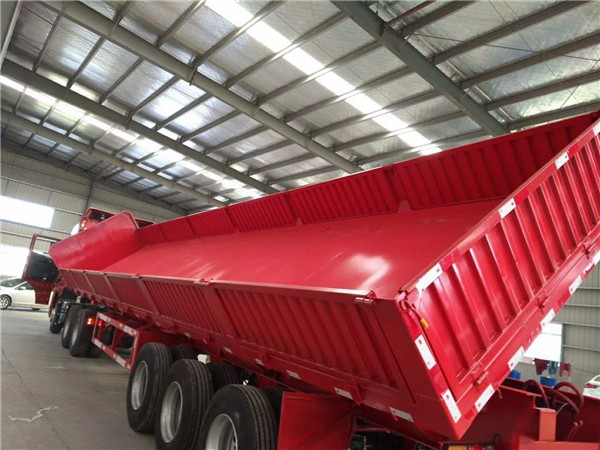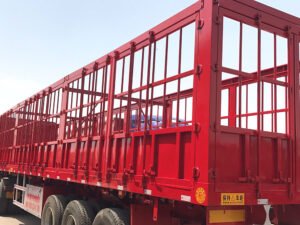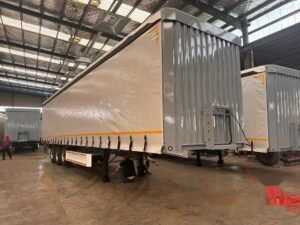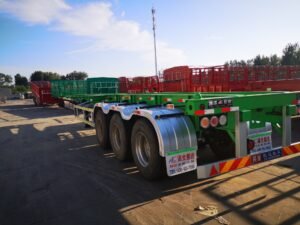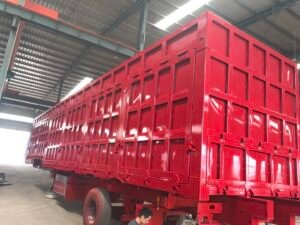Dump trailers are an important means of transportation widely used in industries such as construction, mining, and logistics. They are favored by many companies for their efficient loading and unloading capabilities and flexibility. However, there are many brands and models of dump trailers on the market, and the quality varies. Choosing a suitable trailer is crucial to ensure transportation efficiency and safety. The following are some key steps and considerations for choosing a qualified dump trailer.
Understand the needs
Before choosing a dump trailer, you must first clarify your needs:
**Type of goods transported: Different goods may require different types of trailers.
**Transport volume: Determine the capacity of the trailer based on the transport volume.
**Transport distance: Long-distance and short-distance transport have different requirements for trailers.
Check the manufacturer’s qualifications
When choosing a trailer, the manufacturer’s qualifications and reputation are very important:
**Production license: Make sure the manufacturer has legal production qualifications.
**Quality certification: Check whether the trailer has national or industry quality certification.
Evaluate trailer performance
Performance is the core of the trailer and requires careful evaluation:
**Carrying capacity: The carrying capacity of the trailer must meet the transportation needs.
**Unloading efficiency: The unloading method of the side-tipping dump trailer should be efficient and reduce loading and unloading time.
**Maneuverability: The steering and maneuverability of the trailer should be stable to ensure driving safety.
Check the material and process
The material and manufacturing process of the trailer directly affect its durability and reliability:
**Material quality: Check whether the materials used in the trailer are wear-resistant and corrosion-resistant.
**Welding process: The welding points should be flat and uniform, without cracks or defects.
Consider maintenance and after-sales service
Good maintenance and after-sales service can extend the service life of the trailer:
**Maintenance cost: Understand the maintenance cycle and cost of the trailer.
**Accessories supply: Ensure that the trailer has sufficient accessories for easy replacement.
**After-sales service: Choose a manufacturer that provides good after-sales service.
On-site inspection
If possible, inspect the performance and condition of the trailer on site:
**Test drive experience: Test drive in person to feel the controllability and stability of the trailer.
**Observe details: Pay attention to the details of the trailer, such as welding, painting, etc.
Compare prices
Compare the prices of trailers of different brands and models, provided that they meet your performance and quality requirements:
**Budget range: Determine your budget for purchasing a trailer and choose the most cost-effective product within this range.
**Cost-benefit analysis: Consider the long-term operating costs of the trailer, not just the purchase cost.
Read user reviews
User reviews and feedback can provide valuable information:
**Online reviews: Check out other users’ reviews and usage experience of trailers.
**Industry reputation: Understand the industry’s reviews of different brands of trailers.
Selecting a qualified dump trailer is a process that takes into account performance, quality, cost, and after-sales service. By following the above steps, you can ensure that you choose a dump trailer that is cost-effective and suitable for your needs, thereby improving transportation efficiency and reducing operating costs. Remember, investing in high-quality trailers will bring greater returns in the long run.


